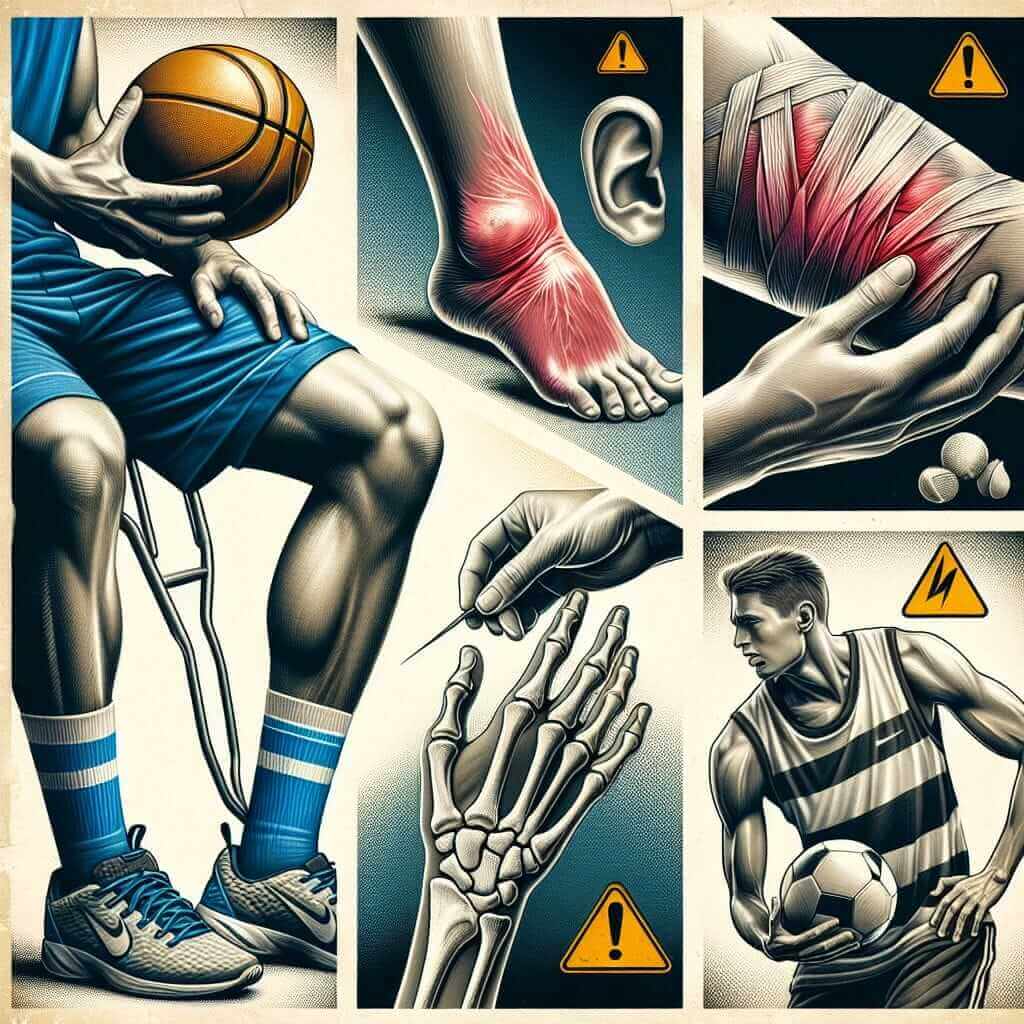As an IELTS instructor with over 20 years of experience, I’ve noticed that many students struggle to discuss health and fitness-related topics, particularly sports injuries. This vocabulary is not only tested in the IELTS exam, but also relevant to daily life, especially if you’re living in an English-speaking country. Whether you’re a sports enthusiast or just preparing for your IELTS exam, having a wide range of vocabulary related to sports injuries will boost your speaking and writing scores.
Understanding the Importance of Sports Injuries Vocabulary in IELTS
The IELTS exam assesses your ability to communicate effectively in English across various topics. Sports and fitness are recurring themes, often appearing in the listening, reading, and speaking sections. You might be asked to:
- Listen to a conversation about a recent sports injury.
- Read an article about the prevention of common sports injuries.
- Speak about a time you or someone you know experienced a sports injury.
- Write an essay discussing the benefits and drawbacks of contact sports in light of potential injuries.
Having a strong vocabulary related to sports injuries allows you to express yourself accurately and fluently, demonstrating your language proficiency to the examiners.
Mastering the Language of Sports Injuries: From Sprains to Tears
Let’s break down some essential vocabulary related to sports injuries, categorized by injury type:
Common Sports Injuries:
- Sprain: An injury to a ligament (the tissue connecting bones), often caused by twisting or overstretching.
- Example: “The basketball player suffered a severe ankle sprain after landing awkwardly.”
- Strain: An injury to a muscle or tendon (the tissue connecting muscle to bone), usually from overuse or overstretching.
- Example: “The weightlifter sustained a hamstring strain during his last set of deadlifts.”
- Fracture: A break in a bone.
- Example: “The cyclist suffered a fractured collarbone in the cycling accident.”
- Dislocation: When a bone is forced out of its joint.
- Example: “The rugby player dislocated his shoulder during a tackle.”
- Concussion: A traumatic brain injury caused by a blow to the head.
- Example: “The football player sustained a concussion after a collision with another player.”
Describing the Severity of Injuries:
- Mild/Slight: A minor injury.
- Example: “I experienced a mild ankle sprain while running.”
- Moderate: An injury that causes noticeable pain and limitations.
- Example: “He has a moderate strain in his calf muscle.”
- Severe: A serious injury that may require extensive treatment.
- Example: “The athlete suffered a severe knee injury, tearing his ACL.”
Other Useful Terms:
- Inflammation: Swelling and redness in a part of the body, often a sign of injury.
- Example: “Applying ice can help reduce inflammation.”
- Rehabilitation: The process of restoring function after an injury.
- Example: “Physiotherapy is an important part of rehabilitation after a knee surgery.”
- Prevention: Taking measures to avoid injuries.
- Example: “Wearing proper footwear is crucial for injury prevention.”

Applying Your Knowledge: Examples from IELTS
Speaking Part 2: Describe a time you or someone you know experienced a sports injury.
“My friend, a keen tennis player, recently suffered a painful elbow injury. While serving, she felt a sharp pain in her forearm and was diagnosed with tennis elbow, a type of tendonitis caused by overuse. She had to undergo physiotherapy and modify her training regimen for several weeks.”
Writing Task 2: Some people argue that contact sports should be banned in schools due to the risk of injury. Discuss both sides and give your opinion.
“While it’s true that contact sports like rugby and American football carry an inherent risk of injury, such as concussions and fractures, proponents argue that these activities provide valuable life lessons in teamwork, discipline, and resilience. Moreover, schools can implement safety measures like mandatory protective gear and age-appropriate training to mitigate the risk of serious injuries.”
Ace Your IELTS: Top Tips for Success
- Don’t just memorize lists! Focus on understanding the meaning and usage of words related to sports injuries.
- Practice using the vocabulary in context. Create your own sentences and scenarios.
- Read articles and listen to podcasts about sports and health to expand your vocabulary naturally.
- Pay attention to collocations – words that commonly go together, like “severe sprain” or “rehabilitation program.”
- Use a variety of vocabulary in your speaking and writing to demonstrate your language range.
By following these tips and consistently incorporating new vocabulary into your practice, you’ll be well-equipped to confidently discuss sports injuries and achieve success on your IELTS exam. Remember, consistent effort is key to mastering any language skill.